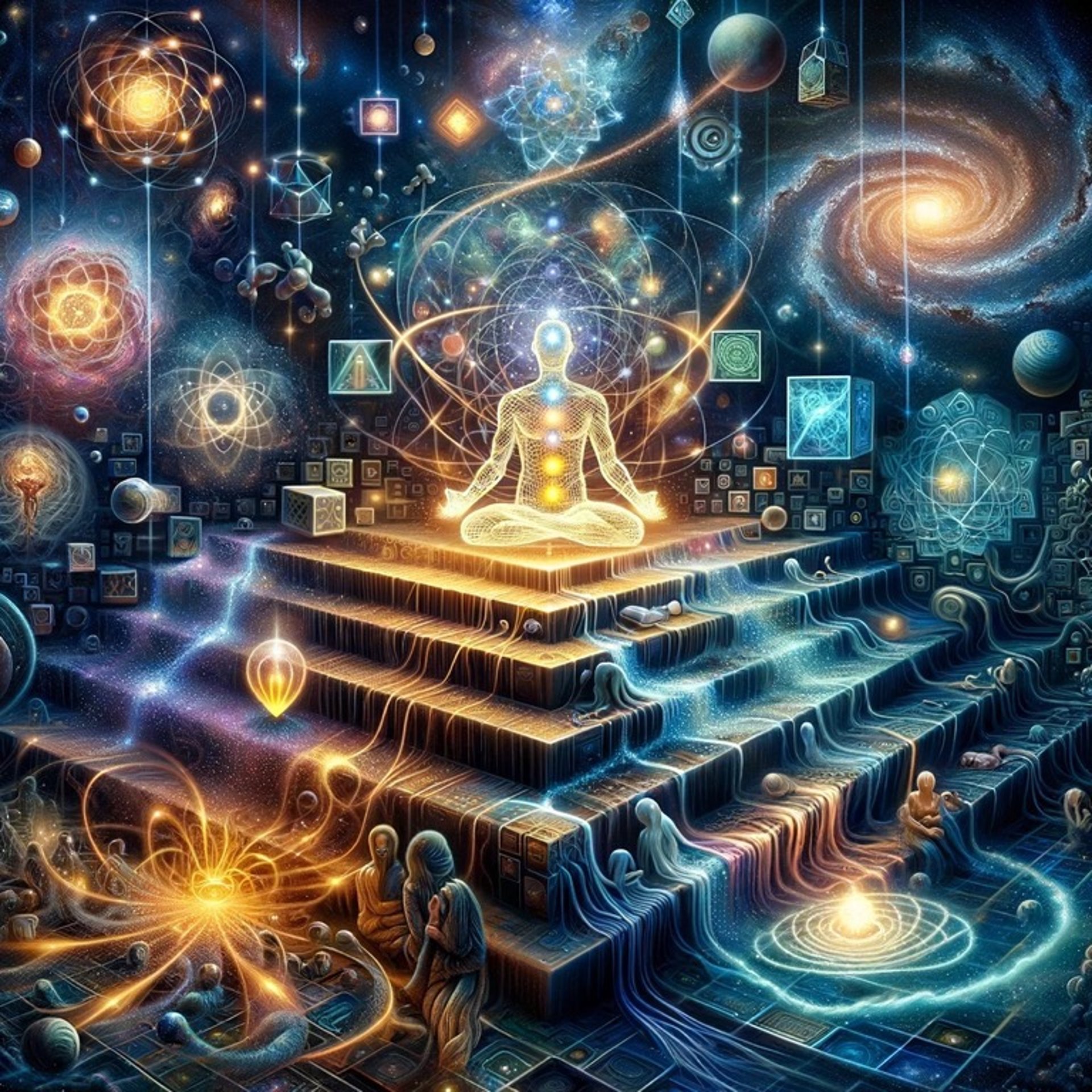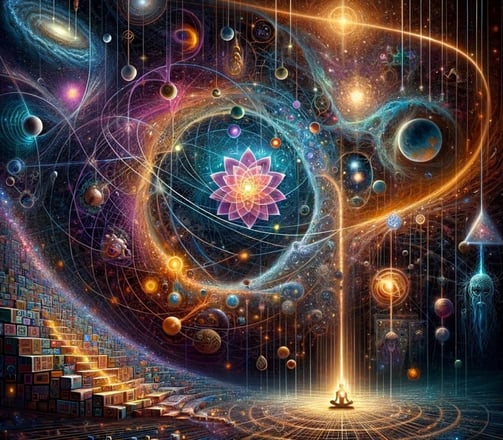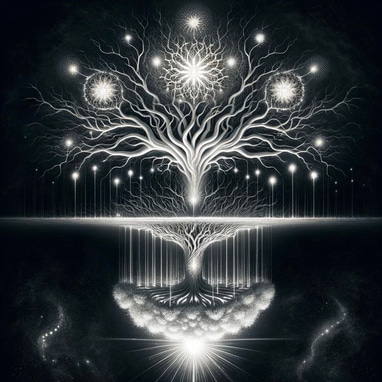
The Convergence of Eastern Philosophy and Western Science: Free Will, Determinism, and the Quest for Understanding
“The Convergence of Eastern Philosophy and Western Science: Free Will, Determinism, and the Quest for Understanding” examines the intricate relationship between the deterministic framework of modern physics and the concept of free will through the philosophical lens of Sri Aurobindo Ghosh’s “Savitri,” highlighting a harmonious interplay between scientific discovery and spiritual insight. This article delves into the dynamic between the growing block universe, quantum mechanics, Einstein’s relativity, and Eastern spiritual wisdom, presenting a unified perspective on the nature of reality and human agency.
PHILOSOPHYEASTERN PHILOSOPHY WESTERN SCIENCE
2/6/20243 min read
In the realm of philosophical inquiry and scientific exploration, few concepts have stirred as much debate as the nature of free will, determinism, and the structure of the universe. The growing block universe theory, juxtaposed with the principles of quantum mechanics and Einstein’s theory of relativity, provides a fascinating framework to explore these themes. Remarkably, the insights from these scientific theories find a profound echo in the spiritual and philosophical writings of Sri Aurobindo Ghosh, particularly in his epic poem “Savitri.” This article endeavors to weave together these diverse strands of thought, shedding light on the intricate dance between determinism and free will, through the lens of both Western science and Eastern philosophy.
The Growing Block Universe and Open Future
The growing block universe posits that the past and present are concrete, while the future remains a realm of possibilities, constantly coming into being as time progresses. This perspective suggests an open future, where the unfolding of events adds new “blocks” to the universe’s spacetime continuum. Such a model intriguingly accommodates the notion of free will, allowing human actions to shape the future within the constraints of past and present realities.
Quantum Mechanics vs. Deterministic Theory
Quantum mechanics introduces a fundamental level of indeterminacy into the fabric of reality, challenging deterministic views of the universe. At the quantum level, particles exist in states of probability until observed, suggesting that the future is not predetermined but influenced by chance and observation. This inherent uncertainty within quantum mechanics opens the door to reconciling free will with the physical laws governing the universe.
Einstein’s Relativity and Determinism
Conversely, Einstein’s theory of relativity, with its deterministic underpinnings, presents a universe where spacetime is a seamless continuum, and events are fixed within its structure. This view seemingly leaves little room for free will, as the future appears as determined as the past. Yet, relativity also introduces the concept of relativistic simultaneity, hinting at a more complex relationship between time, space, and causality.
Aurobindo Ghosh and “Savitri”: Free Will and Determinism
Sri Aurobindo Ghosh, a visionary philosopher and spiritual leader, offers a unique synthesis of these ideas through his epic poem “Savitri.” In “Savitri,” Aurobindo explores the themes of destiny, divine intervention, and human agency, portraying a universe where the divine and the human coexist in a dynamic relationship. Aurobindo suggests that while the cosmic order or “Dharma” sets the stage, individual consciousness has the power to transcend predetermined paths, echoing the concept of an open future.
Aurobindo’s philosophy, particularly his concept of the “Supramental” consciousness, aligns with the idea of an evolving universe where human will plays a crucial role in shaping destiny. He posits that through spiritual evolution, humanity can rise above the deterministic workings of nature, embodying a higher state of being that harmonizes free will with the divine order.
Correlating Eastern Philosophy with Western Science
The dialogue between Aurobindo’s spiritual philosophy and the scientific theories of the growing block universe, quantum mechanics, and relativity highlights a fascinating convergence. Both realms suggest that reality is not a static, predetermined structure but a dynamic interplay of certainty and possibility, where human consciousness and choice have a significant role.
This synthesis of thought encourages a view of the universe where determinism and free will are not mutually exclusive but are part of a grander cosmic dance. It invites us to reconsider the nature of reality, time, and our place within the universe, advocating for a perspective that embraces both the scientific quest for understanding and the spiritual search for meaning.
Conclusion
The exploration of free will, determinism, and the nature of the universe through the lens of both Western scientific theories and Eastern philosophical insights offers a rich tapestry of ideas that challenge and enrich our understanding. In bridging the gap between these diverse perspectives, we find not only a deeper appreciation of the complexity of reality but also a hopeful vision of human potential and the power of consciousness to shape our destiny.


My post content


